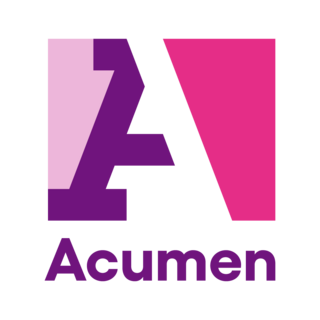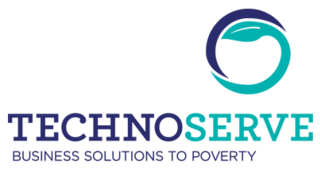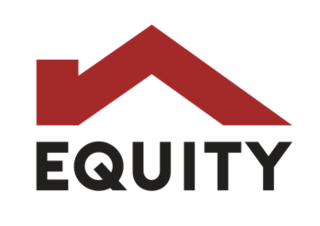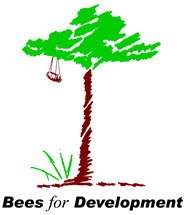A social enterprise is an organization that applies commercial strategies to maximize improvements in financial, social and environmental well-being. This may include maximizing social impact alongside profits for co-owners.
Opportunity International is a 501(c)(3) nonprofit organization chartered in the United States. Through a network of 47 program and support partners, Opportunity International provides small business loans, savings, insurance and training to more than 14 million people in the developing world. It has clients in more than 20 countries and works with fundraising partners in the United States, Australia, Canada, Germany, Switzerland, Singapore, Hong Kong and the United Kingdom. Opportunity International has 501(c)(3) status as a tax-exempt charitable organization in the United States under the US Internal Revenue Code.

East African Breweries Limited, commonly referred to as EABL, is a Kenyan-based holding company that manufactures branded beer, spirits, and non-alcoholic beverages.

The U.S. African Development Foundation (USADF) is an independent U.S. government agency established by Congress in 1980 to invest directly in African grassroots enterprises and social entrepreneurs. USADF's investments aim to increase incomes, revenues, and jobs by promoting self-reliance and market-based solutions to poverty. USADF targets marginalized populations and underserved communities in the Sahel, Great Lakes, and the Horn of Africa. It partners with African governments, other U.S. government agencies, private corporations, and foundations to achieve transformative results.

Acumen is a nonprofit impact investment fund based in the U.S. that focuses on investing in social enterprises that serve low-income individuals. Acumen was founded in April 2001 by Jacqueline Novogratz. It aims to demonstrate that small amounts of philanthropic capital, combined with business acumen, can result in thriving enterprises that serve vast numbers of the poor. Over the years, Acumen has invested $154.4 million in 167 companies and has had a successful track record in sourcing and executing investment opportunities in the clean energy, education, financial inclusion, health care and agriculture sectors.

ClimateCare is a profit for purpose environmental and social impact company known for its role providing carbon offset services, with a particular focus on using carbon and other results based finance to support its 'Climate+Care Projects'. It also provides businesses and governments with sustainable development programmes, environmental and social impact measurement and project development.

The Global Alliance for Improved Nutrition (GAIN) is a non-profit foundation based in Geneva, Switzerland. GAIN was developed during the UN 2002 Special Session of the General Assembly on Children. GAIN’s activities include improving the consumption of nutritious and safe foods for all. The foundation is supported by over 30 donors and works closely with international organisations and United Nations agencies. It has a 20-year history of food system programmes with a focus on adolescent and child nutrition, food system research, fortification, small and medium enterprise assistance, biofortification of crops, and reducing post-harvest losses.
Self Help Africa is an international charity that promotes and implements long-term rural development projects in Africa. Self Help Africa merged with Gorta, in July 2014, and was known for a period as Gorta-Self Help Africa. In 2021, the organisation merged with the UK-based international non-governmental organization (INGO), United Purpose. Self Help Africa also owns a number of social enterprise subsidiaries - Cumo Microfinance, TruTrade and Partner Africa.
Pioneers of Prosperity is an awards programme for entrepreneurs in Africa, the Caribbean and Central America that have created wealth and invested in their society. Its aim is to recognise and support today's successful enterprises and inspire the next generation of entrepreneurs, leading to stronger, more sustainable development in these regions. Winning companies receive up to $100,000 to invest in their business.
One Acre Fund is a social enterprise that supplies smallholder farmers in East Africa with asset-based financing and agriculture training services to reduce hunger and poverty. Headquartered in Kakamega, Kenya, the organization works with farmers in rural villages throughout Kenya, Rwanda, Burundi, Tanzania, Uganda, Malawi, Nigeria, Zambia, and Ethiopia.

TechnoServe is an international nonprofit that promotes business solutions to poverty in the developing world by linking people to information, capital and markets. It is a registered 501(c)(3) based in Washington, D.C., with over 1,540 employees across 29 countries worldwide.
Lifeline Energy is a non-profit social enterprise that provides technology solutions for off-grid learning. The organization designs, manufactures and distributes solar and wind-up media players and radios for classroom and group listening and was behind the first solar and wind-up radio for humanitarian use which launched in 2003. Since it began operations in 1999 more than 550,000 wind-up and solar powered radios and media players have been distributed, mainly in sub-Saharan Africa. Millions of listeners have been reached, as classrooms of up to 60 children or listening groups can use each radio or media player.

Equity Bank Rwanda Limited (EBRL), is a commercial bank in Rwanda. The bank is licensed by the National Bank of Rwanda, the central bank and national banking regulator.

Bees for Development is an international charity working to alleviate poverty through beekeeping. Beekeeping contributes to supporting sustainable livelihoods in poor and remote communities; honey bees provide an essential ecosystem service. Bees for Development currently runs projects in Uganda, Zanzibar, Ethiopia and Kyrgyzstan. Its offices are in Monmouth, South Wales.

PharmAccess Foundation is a part of the PharmAccess Group. PharmAccess is an international non-profit organization with a digital agenda dedicated to connecting more people in sub-Saharan Africa to better healthcare. By making use of public-private partnerships, they leverage donor contributions, which they believe will pave the way for private investments thereby contributing to healthier populations and social and economic development. Currently, PharmAccess employs a multidisciplinary team of professionals in Tanzania, Kenya, Nigeria, Ghana and the Netherlands.
SEED is a global partnership for action on sustainable development and the green economy. It was initiated in 2001 by the German Federal Ministry for the Environment, Nature Conservation, Building and Nuclear Safety (BMUB). Under the name SEED Initiative it was presented as an “Example of Excellence” partnership inter alia by UNEP and BMUB at the Johannesburg World Summit on Sustainable Development in 2002 where it was also registered by the United Nations Environment Programme (UNEP), the United Nations Development Programme (UNDP), and the International Union for Conservation of Nature (IUCN) as a Type II Partnership. SEED was originally conceived as an acronym for Supporting Entrepreneurs for Environment and Development.

The Nigerian Capital Development Fund (NCDF) is an organization dedicated to impact investing and promoting economic development in Nigeria. Established with the aim of fostering a resilient entrepreneurial ecosystem, NCDF provides essential support, capital, and resources to entrepreneurs, start-ups, and early-stage businesses. The organization's efforts are focused on facilitating job creation, product development, market expansion, and overall economic growth within the country.
Science and technology in Tanzania describes developments and trends in higher education, science, technology, innovation policy, and governance in the United Republic of Tanzania since the turn of the century.
Science and technology in Uganda refers to the growth within the technological industry in response to government efforts to develop a national innovation system, as well as any subsequent socioeconomic and cultural impacts of these endeavours.

BOMA is a U.S. nonprofit organization and Kenyan NGO that works to provide poor women living in the arid and semi-arid lands of Northern Kenya with the educational, financial, and technological resources to lift themselves out of poverty. Its mission is to “empower women in the drylands of Africa to establish sustainable livelihoods, build resilient families, graduate from extreme poverty and catalyze change in their rural communities.”










